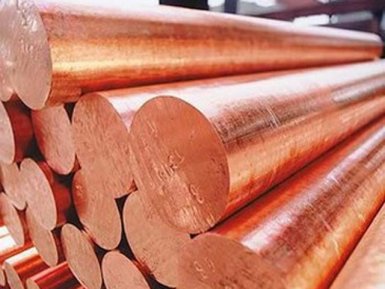Processing, rolling and deformation of tantalum

Are you interested in plastic deformation of tantalum and its alloys from the supplier company AvecGlob? Here you will find the necessary information on this topic.
Features of tantalum processing
In the annealed state, tantalum is extremely ductile, and allows performing all deformation and rolling operations.
In particular, for deep drawing or extrusion, only annealed material should be used. The deformation of tantalum, due to the phenomenon of plastic inertia of the material, should proceed with lower deformation rates.
It is recommended to use steel stamps when performing stamping transitions. The gap between the punch and the matrix should be approximately 6% of the thickness of the metal being processed. Lubricants with low viscosity are used as a lubricant.
Shaping operations with tantalum are carried out in the same way as for plastic low-carbon steels, with the exception of precautionary measures, which should be avoided in order to avoid seizing or rupturing the metal. Stamps can be made of steel, except for cases of significant slipping of metal over the surface of the tool. In this situation, use aluminum bronze or beryllium copper.
Rotational stamping is carried out in the same way as for steel billets. As tools, steel rollers can be used, and for small deformations, tools made of brass. The use of grease is mandatory.
Supplier — AvekGlob Company — offers tantalum and its alloys in a wide range of brands and profiles, as well as at affordable prices from the manufacturer. The supplier guarantees the timely delivery of products to any address specified by the consumer.
Rolling of tantalum and its alloys
Modes of deforming processing are determined by the chemical composition of the alloy. Even small amounts of elements dissolved in the intermediate composition, such as oxygen, nitrogen, hydrogen and carbon, are capable of modifying the mechanical properties of tantalum. In addition, the purity of the metal powder, the production process (sintered or melted quality), the degree of deformation (especially during cold rolling) and the type of heat treatment used also affect the mechanical properties of tantalum.
During rolling, the strength of tantalum alloys in tension and hardness increases, this simultaneously leads to a drop in the relative elongation of the material. Although the material loses its plasticity, it does not become brittle.
The heat resistance of the material is lower than that of tungsten, but is similar to the value found for pure molybdenum. To increase the heat resistance, it is recommended to use tantalum alloys with tungsten.
Rolling of tantalum alloys is not difficult because of the high plasticity of the material.
Supplier — AvekGlob Company — offers to purchase tantalum and its alloys in a variety of brands in the assortment. Products can be bought at a price formed on the basis of European and world standards. Implementation is possible in bulk and retail, for regular customers, a flexible system of discounts operates.


